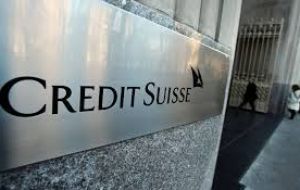MercoPress. South Atlantic News Agency
Deutsche Bank and Credit Suisse reach payment deals with US authorities on sub-prime scams
 Deutsche and Suisse Credit agreed to pay US$ 72.bn and US$ 5.28bn respectively to US authorities to settle the dispute. Barclays could be next.
Deutsche and Suisse Credit agreed to pay US$ 72.bn and US$ 5.28bn respectively to US authorities to settle the dispute. Barclays could be next. Germany's Deutsche Bank announced it has agreed a US$7.2bn payment to US authorities over an investigation into mortgage-backed securities. The sum, which needs final approval, is far lower than the US$14bn the US had asked the bank to pay in September. The looming fine had caused concerns that a failure of the bank could pose a risk to the global financial system.
Credit Suisse also announced a similar deal, while Barclays is now under investigation too. The sale of residential mortgage-backed securities played a significant role in the 2008 financial crisis.
Several banks in the US have been subject to investigations over allegations of giving mortgages to unqualified borrowers, then repackaging those loans as safe investments and selling the risk on to others. The inquiries related to deals done between 2005 and 2007.
Meanwhile, Credit Suisse has said it has agreed a US$5.28bn deal to settle its own dispute with US authorities over mortgage-backed securities. The Swiss bank will pay US authorities US$2.48bn, and will also give consumers US$2.8bn in compensation over the next five years.
At the same time, the US Department of Justice has said it is now also suing Braclays for alleged mortgage securities fraud. It alleged that from 2005 to 2007, Barclays “repeatedly misrepresented the characteristics of the loans backing securities they sold to investors throughout the world, who incurred billions of dollars in losses”.
Deutsche Bank operates in 70 countries with 100,000 employees, but is shedding about 15% of its workforce, disposing of its retail bank, Postbank, and pulling out of other countries. Its assets are about €1.6tn. HSBC, the biggest non-Chinese bank in the world, has assets 50% greater than that, but Deutsche is still in, or near, the top 10 biggest global banks.
Under the settlement, Deutsche's payment will be made up of a civil penalty of US$3.1bn, as well as US$4.1bn in consumer relief, delivered over a period of five years, that will help US homeowners.
Other banks that have been ordered to pay fines by the US Department of Justice include Citigroup, which says its US$12bn penalty has been reduced to US$7bn. In 2013, JP Morgan Chase was fined US$13bn, following allegations that it overstated the quality of mortgages being sold to investors. In the following year, Bank of America paid US$16.7bn to settle similar charges. Goldman Sachs settled for US$5.1bn in January this year.




Top Comments
Disclaimer & comment rules-

-

-

Read all commentsThe operations of those entities need to be wound done, ceased and assets liquidated.
Dec 27th, 2016 - 01:03 pm -1Banks operates in a rarified space in the capitalistic stratosphere with their primary responsibility being the maintenance of their fiduciary responsibility to the customer and not their stockholders or board.
These and others haven't earned the right to operate at global scales.
When there is a demonstrable propensity for weakness in corporate governance of an entire sector the individual sizes of its constituent components need to be limited in order that any future self regulatory failings and subsequent enforcement actions no matter the breadth of their scope will have limited market impact.
So you want the government to regulate a maximum size (or market share?) for banks, which is much smaller than many are today. Presumably the government should forcibly break up the existing banks in order to achieve this.
Dec 27th, 2016 - 08:20 pm -1And how would you convince the banks to treat their customers as their primary responsibility, rather than the shareholders? The customers do not get a vote on who runs the bank, and we have all been told for years that the only purpose of companies is to make money.
I guess this is the new right, who want more government regulation of business, less trade and higher tariffs.
The USG should have liquidated these Euro trash companies.
Jan 01st, 2017 - 04:21 am -1Commenting for this story is now closed.
If you have a Facebook account, become a fan and comment on our Facebook Page!